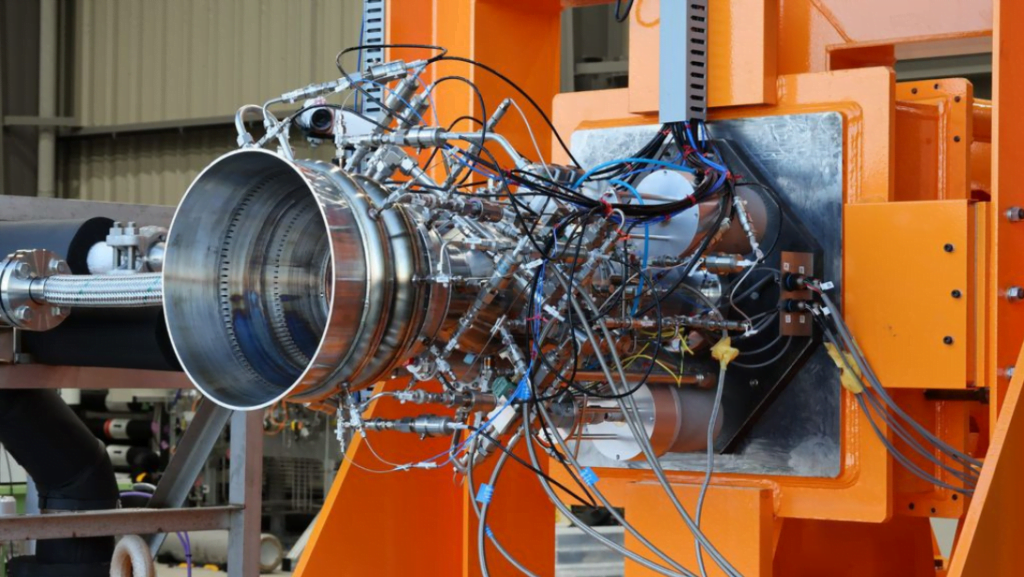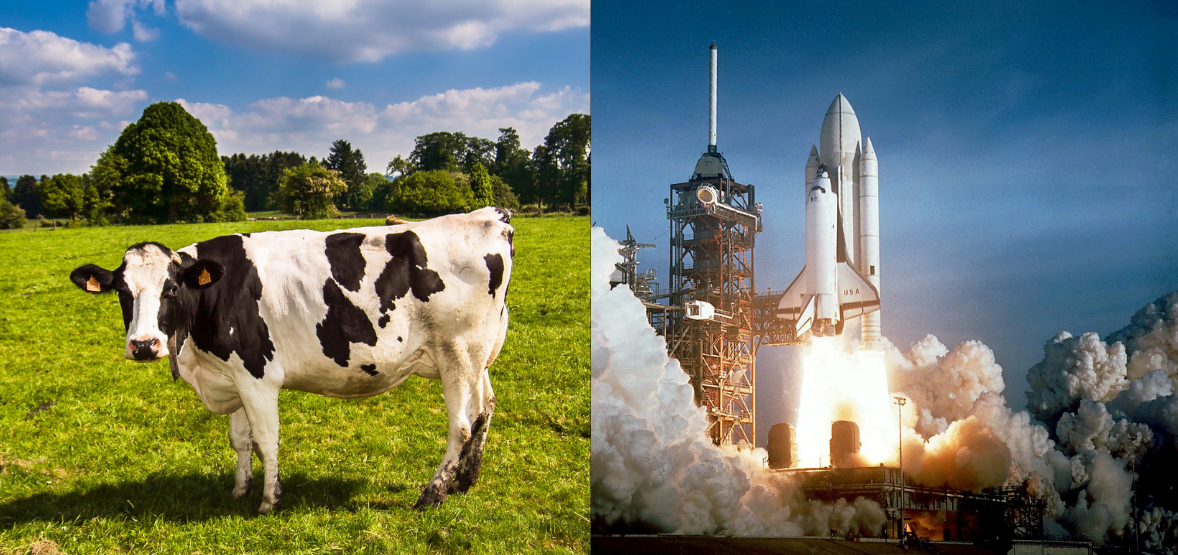A Japanese space startup interstellar Technologies test-fired a rocket engine powered by cow dung at the Hokkaido Spaceport for its Zero rocket. The engine test showcased the effectiveness of methane gas derived from cow dung as a clean and easily accessible source of rocket fuel.
The static fire test successfully ignited the engine for 10 seconds, generating a powerful blue flame. This achievement follows the development of a rocket engine by the European Space Agency that utilizes biogas as fuel. However, Interstellar Technologies is the first private company to accomplish this feat in interstellar technologies, giving it a unique position in the field.
The engine test showcased the effectiveness of biomethane as a clean and easily accessible source of rocket fuel.

Rocket Engine Powered By Cow Dung
The engine of Zero Rocket will be fueled by liquid biomethane derived from cow dung, with liquid oxygen serving as the oxidizer.
The in-house designed Zero combustion chamber incorporates pintle injectors used in SpaceX’s Merlin engines, which power the Falcon 9 and Falcon Heavy rockets of SpaceX. While pintle injectors are usually known for limited performance but the research and development efforts in collaboration with the University of Tokyo and JAXA Space Innovation have improved the design, achieving high combustion efficiency and improved performance.
The ZERO Rocket
This rocket is set to take its inaugural flight in 2025. It will be 105 feet (32 meters) long, with a diameter of 7.5 feet (2.3 meters), making it larger than the Rocket Lab’s Electron vehicle, which is 59 feet (18 meters) long. The Zero rocket, in the lower Earth orbit class, is capable of lifting approximately 1,760 pounds (800 kilograms) and will be launched from the Hokkaido Spaceport.
Read also Aditya L1 status: Live tracking and location of Aditya L1
Interstellar Technologies Inc.
Interstellar Technologies was established in 2005, a time when commercial space activities were flourishing in the United States but not yet prevalent in Japan. Interstellar claims to be Asia’s first commercial company to reach space with a liquid-fueled MOMO-F3 rocket in 2019.
This startup is not interested in just launching satellites but also in launching human space flight, and space tourism in the future. Currently, this startup developing its most advanced and flexible rocket known as “ZERO”.
Read also China Launched Spy Optical Satellite Yaogan-41
Read also Iran’s Ambitious Plan: Iran’s Human Space Mission Set for 2029


